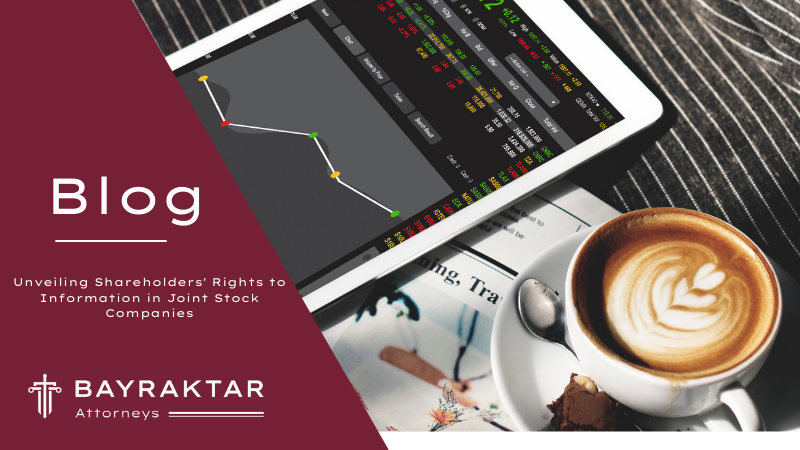
Unveiling Shareholders’ Rights to Information in Joint Stock Companies
In the realm of joint-stock companies, accountability and transparency stand as pillars shaping corporate governance.
Central to this ethos are the rights vested in both shareholders and board members to access information.
This article delves into the intricacies of these rights, exploring their significance and legal frameworks.
A. Upholding Shareholders’ Right to Transparency
Article 437 of the TCC secures shareholders’ access to vital information essential for informed decision-making. Regardless of their stake in the company, shareholders are entitled to peruse financial statements, audit reports, and activity summaries.
This right is particularly crucial preceding general assembly meetings, affording shareholders the opportunity to assess the company’s performance comprehensively.
Moreover, shareholders wield the authority to request information directly from the board and auditors during these assemblies, fostering a culture of openness and accountability.
In accordance with Article 437/2 of the Turkish Commercial Code (TCC), shareholders hold a significant privilege during the general assembly proceedings.
They retain the right to seek elucidation directly from two key entities: the board of directors and the auditors. This entitlement extends to querying the board regarding the company’s operational trajectory and delving into the specifics of the audit process with the auditors.
Article 437/4 of the Turkish Commercial Code (TCC) provides shareholders with an additional avenue to scrutinize the commercial books and correspondence of a company: through the engagement of an expert. Should shareholders opt to utilize this option, they must adhere to certain procedural requirements.
Firstly, explicit permission from either the general assembly or a decision sanctioned by the board of directors is indispensable. This mandate underscores the significance of formal authorization in accessing sensitive corporate records.
B. Navigating Limitations on Information Access
While the TCC mandates transparency, it also recognizes the need to safeguard sensitive corporate information.
Article 437 delineates instances where shareholders’ requests for information may be justifiably denied to prevent the disclosure of trade secrets or potential harm to the company’s interests.
Despite these limitations, shareholders maintain recourse through judicial channels, ensuring that their right to information remains inviolable within legal bounds.
C. Empowering Board Members with Informational Rights
Article 392 of the Turkish Commercial Code (TCC) fortifies the position of board members within joint-stock companies by granting them expansive informational prerogatives.
Each board member possesses the authority to scrutinize the company’s operations, transactions, and pertinent documents. This right extends to requesting presentations of ledgers, contracts, and correspondence, ensuring transparency within the company’s affairs.
Furthermore, the TCC mandates that any denial of these rights by the chairman must be swiftly addressed by the board or the commercial court, underscoring the non-negotiable nature of board members’ access to information.
In essence, the right to information stands as a cornerstone of corporate governance in joint-stock companies, ensuring accountability and fostering trust among stakeholders.
While disparities exist between the informational rights of board members and shareholders, both are indispensable in upholding the principles of transparency and accountability.
As Bayraktar Attorneys, we remain committed to providing guidance and clarity on these vital legal matters, empowering our clients to navigate the complex landscape of corporate governance with confidence. For further inquiries or assistance, please do not hesitate to reach out to us.
Recently Added Blogs



.png)
.png)
.png)
.png)
